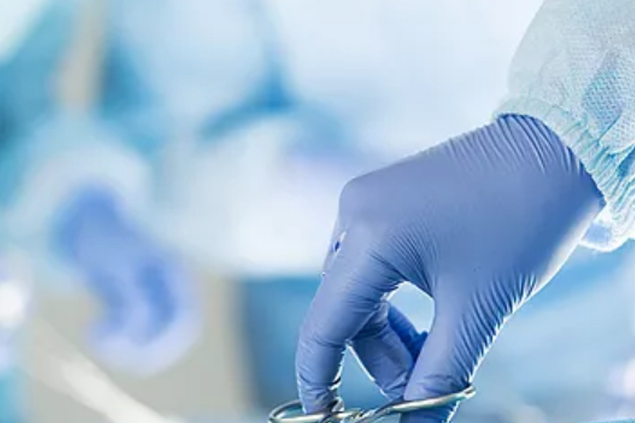Types of Surgical Instruments – Names and Instrument Selection
If we classify them according to their function, there are three main types of surgical instruments:
- Cutting surgical instruments – Such as blades, knives, scissors and scalpels.
- Grasping surgical instruments – Anything you use to hold something in place, such as forceps.
- Retracting surgical instruments – For holding incisions open, or for holding organs and tissues out of the way while you operate.
Types of Surgical Instruments For Cutting
These are some of the most common surgical instruments for cutting:
Blades, Knives and Scalpels
We categorise scalpels by their size and shape, and each type is good for a different sort of application. For example, surgeons usually choose a number 10 blade for making smaller incisions in skin and tissue. Whereas a number 15 blade, with its small curve, is better for making short and precise incisions, such as when removing a skin lesion or opening a coronary artery.
Surgical Scissors
Surgical scissors come in a huge range of sizes. At the top end of the scale are heavy-duty surgical scissors, which can cut through thick tissue, muscle, and even bone. Mid-size surgical scissors use a combination of sharp and serrated blades to give precise cuts with minimal tissue damage. Surgical scissors with curved blades help you to make clean cuts without hitting any underlying tissue.
Smaller scissors include Vannas scissors and Castroviejo scissors, both of which are good for delicate applications such as ophthalmic and neurosurgical procedures. Finally, small sapphire blades can create precise cuts while applying a minimum of pressure, making them perfect for microsurgery.
Types of Surgical Instruments For Grasping
Like scissors and scalpels, surgical forceps come in a range of styles and sizes, each one suitable for different applications. Forceps can either have straight tips or curved tips. Straight tips provide more grip and precision, while curved tips provide more visibility.
Thumb Forceps
Some forceps you squeeze to open. These are thumb forceps, and they’re good for dressing wounds, removing dressings, and tying sutures.
Reverse Forceps
Other forceps you squeeze to close. These are reverse-forceps, and their design provides uniform tension for added precision, especially when you’re wearing gloves.
Locking Forceps (Haemostats)
Some forceps resemble scissors. These are called haemostats or locking forceps, and surgeons use them to securely hold tissues during delicate operations, and to compress blood vessels to obstruct the blood flow when operating on organs.
Types of Surgical Instruments For Retracting
In surgery, retractors can either hold a wound or incision open, or hold an organ or tissue out of the way so you can work underneath.
Hand Retractors
Hand retractors require someone – or something – to hold them in place for the duration of a procedure. Surgical assistants usually undertake this role.
Self-Retaining Retractors
As the name suggests, self-retaining retractors do not require anyone to hold them throughout procedures. They can use screws, ratchets or clamps to hold tissue in place. Alternatively, wire retractors use a spring system to keep things secure.
Choosing The Right Surgical Instrument For Your Application
Some surgical instruments are versatile. You can use them in a range of applications. But certain applications will demand more specific surgical tools – smaller, sharper, or more precise, for example.
Your surgical instrument supplier should help you choose the right instrument for your specific application. But here are some things you should consider to help narrow down your choice:
- What procedure are you performing? Almost every procedure you could conceivably perform over the course of your surgical career will have been performed before. This means that there’ll be published research papers about almost every procedure. These papers will often list the surgical equipment used during the procedure. They may even make clear recommendations for which equipment to use for best results.
- How often will you use the surgical equipment? Of course you’ll keep your surgical instruments clean between use. But it’s also important to remember that surgical equipment doesn’t stay sharp forever. If you intend to make heavy use of your surgical equipment, look for those made with more durable materials, as they’ll stay sharp for longer.
Need more advice in choosing the right surgical equipment for your application? We offer one of the most comprehensive ranges of surgical instruments in the UK, and our experts are always on hand to help you choose the equipment you need. Find out more about our surgical instruments.



